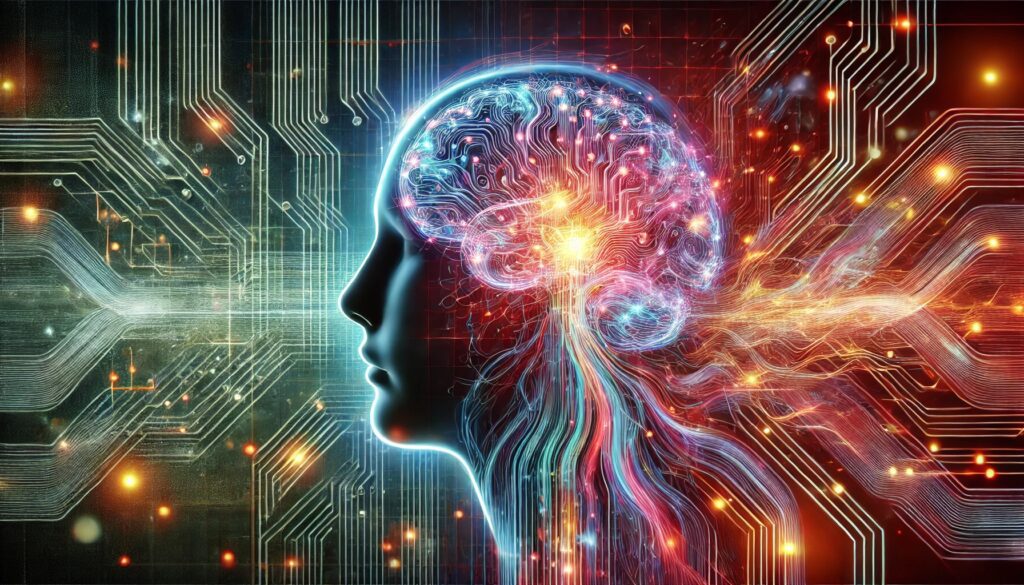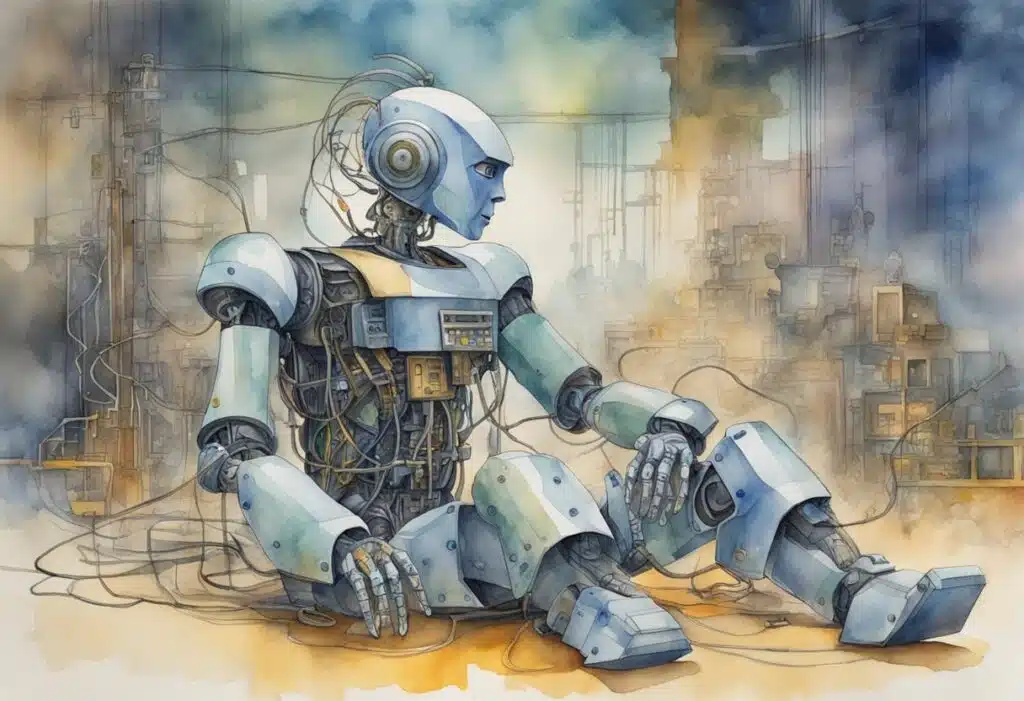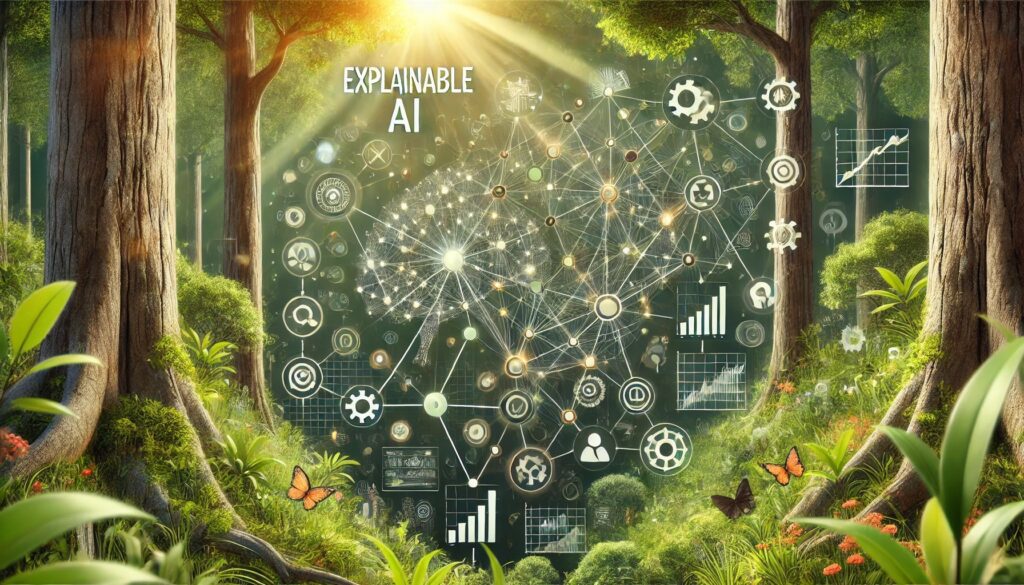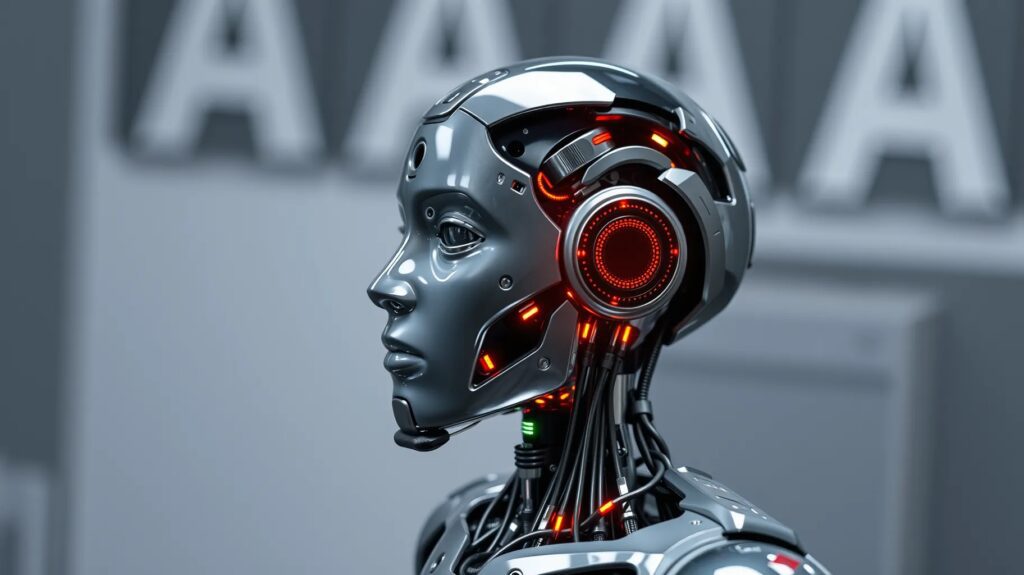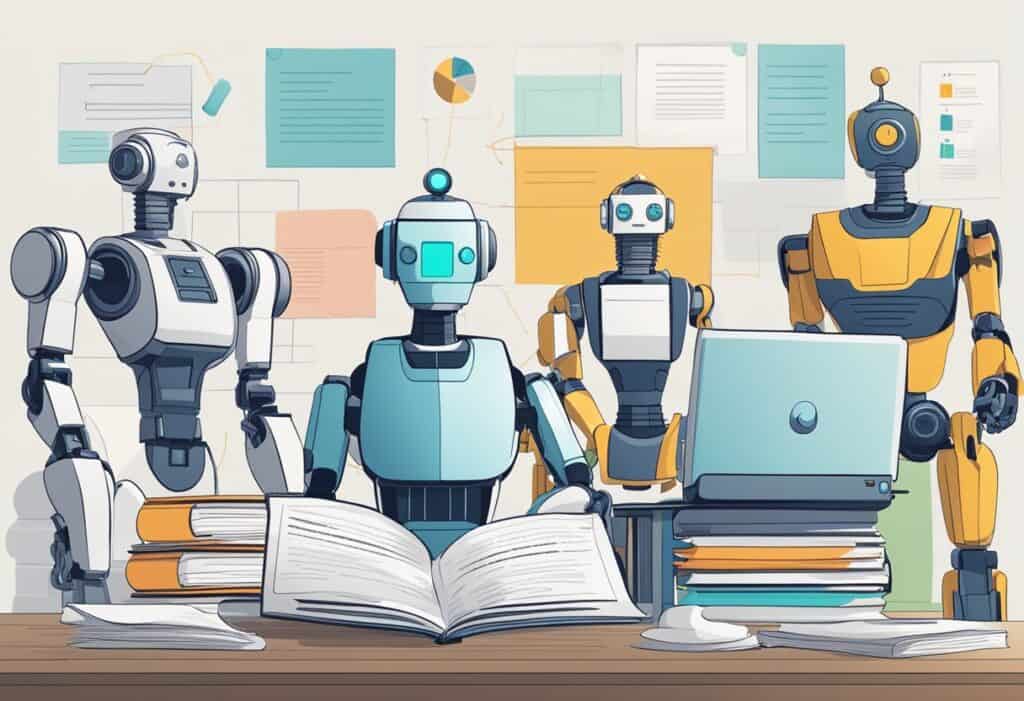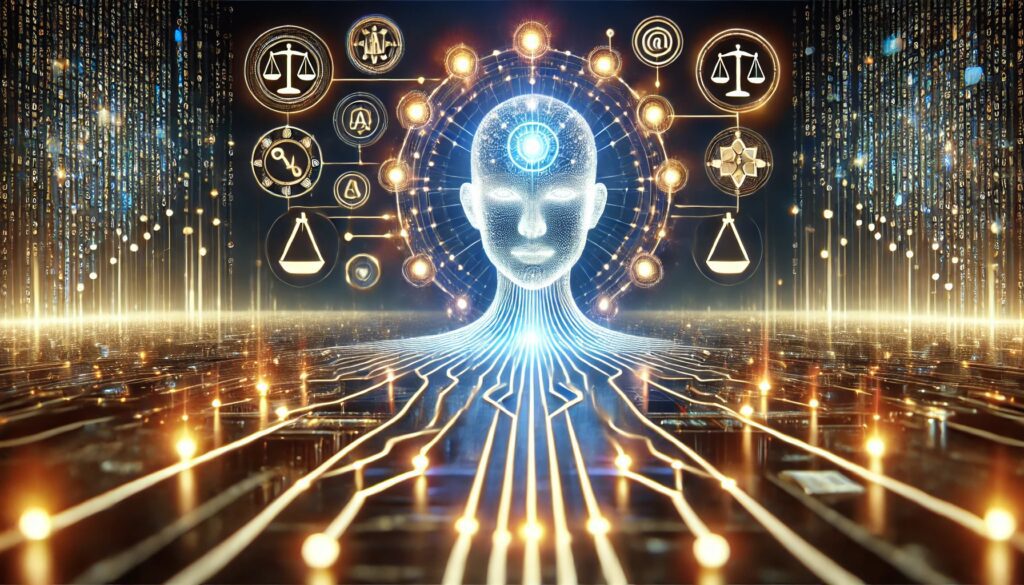
The rise of agentic AI, systems that can act independently, has sparked a major question in technology and ethics: Can these systems truly make moral decisions?
Autonomous systems like self-driving cars or AI healthcare assistants aren’t just performing tasks anymore. They’re handling decisions that can have real-world ethical consequences.
But can AI understand and act based on morality—or are they just programmed to simulate ethical behavior?
What Is Agentic AI and Why Does It Matter?
At its core, agentic AI refers to artificial intelligence that operates with a certain degree of autonomy. Instead of simply following rigid instructions, these systems are capable of making decisions based on complex data inputs. Think of an AI-powered autonomous vehicle navigating a crowded city. It has to evaluate traffic laws, road conditions, and the unpredictable behavior of pedestrians and other drivers.
But why does this matter? Because these systems aren’t just making calculations; they’re also making decisions that affect human lives. And with that comes the crucial question: How do we ensure that agentic AI makes the right decision when morality comes into play?
The Challenge of Programming Morality Into Machines
Unlike humans, AI doesn’t have a natural sense of ethics. It’s not guided by emotions, upbringing, or personal experiences. So, how do we embed morality into a machine that doesn’t have a conscience?
The answer lies in ethical algorithms. These are rules and guidelines designed to help the AI weigh choices based on predetermined moral frameworks. For example, a self-driving car might be programmed to prioritize the safety of its passengers in a crash scenario. But what if saving the passengers endangers pedestrians? The dilemma quickly becomes complex, making it clear that ethical decision-making isn’t always straightforward.
While researchers are working on sophisticated algorithms that simulate human ethics, the challenge is that morality itself is subjective. What’s morally right in one culture might not be in another, leaving open the question of which ethical principles we program into AI.
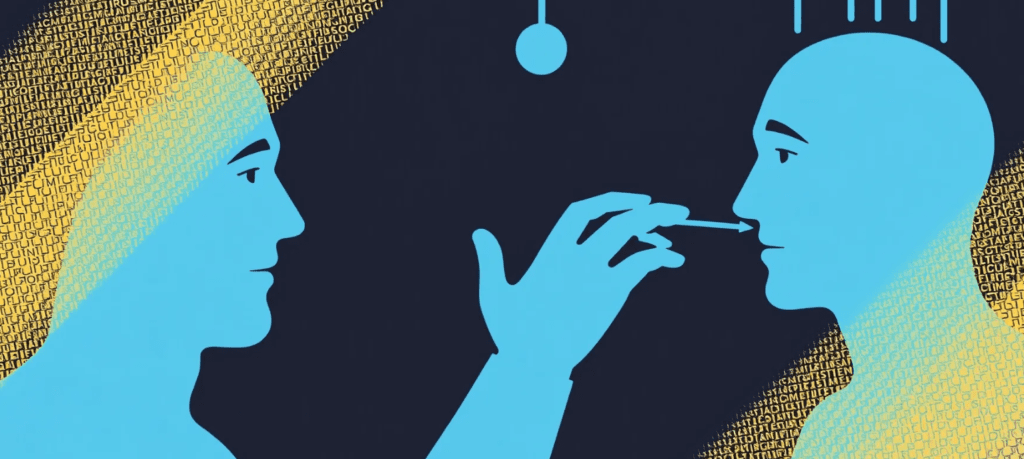
Different Ethical Frameworks AI Might Adopt
When we talk about moral decision-making, it’s important to understand the ethical frameworks that could guide an AI’s behavior. Two of the most common approaches are utilitarianism and deontological ethics.
- Utilitarianism: This framework suggests that the most ethical choice is the one that maximizes overall happiness or minimizes harm. AI systems might be programmed to calculate the “greatest good” in any given situation. For instance, a medical AI could recommend a treatment that benefits the majority of patients, even if it comes with significant risks for a few.
- Deontological ethics: On the other hand, this approach emphasizes following rules and duties regardless of the outcome. An AI guided by this framework would stick to specific ethical guidelines, such as always following traffic laws, even in a situation where breaking them might save lives.
Neither approach is perfect, and both pose serious challenges for AI systems. A purely utilitarian AI could potentially justify harm to a minority, while a deontological AI might make rigid decisions that don’t take into account the complexities of real-life situations.
The Role of Human Oversight in AI Ethics
Even with advanced ethical algorithms, many experts argue that we should never leave AI systems to make moral decisions entirely on their own. Human oversight is seen as crucial in keeping autonomous systems in check.
Take, for example, military drones. These systems are increasingly autonomous, but most countries insist on having human operators who make the final call in life-or-death situations. The idea is that while AI can assist in decision-making, it shouldn’t be the sole arbiter in matters of life, death, and morality.
This raises another question: To what extent should humans intervene? And at what point do we trust the machine’s judgment over our own? Autonomous systems in medicine, law enforcement, and even judicial decision-making are already starting to tread this fine ethical line.
Could AI Ever Develop Its Own Moral Compass?
It’s one thing to program ethical behavior into an AI system. But could AI ever develop its own sense of morality, something akin to a human conscience?
The concept of machine learning gives us a clue. AI systems that are designed to learn from vast amounts of data might eventually develop an ability to recognize and respond to moral situations without being explicitly programmed to do so. Theoretically, an AI system exposed to enough examples of ethical behavior could start to make decisions that mirror human morality.

But here’s the catch: AI doesn’t have emotions, self-awareness, or personal values. It doesn’t feel guilt, empathy, or responsibility. So while it might mimic ethical behavior, it wouldn’t truly understand the moral implications of its actions. This leads to concerns about the limits of AI’s potential for ethical decision-making.
The Impact of Bias in AI’s Ethical Frameworks
When we talk about ethics and AI, we can’t ignore the elephant in the room: bias. AI systems are trained on data, and if that data contains biased information, the AI’s decision-making process can become skewed.
For example, AI used in law enforcement has been found to disproportionately target certain racial and ethnic groups. These systems weren’t programmed to be biased, but the data they learned from reflected real-world inequalities. This is a major issue when AI is tasked with making decisions that have ethical consequences.
The solution to bias in AI isn’t simple, but it’s clear that developers need to take this into account when building systems intended for ethical decision-making. Ensuring fairness and transparency in AI systems is critical if we are to trust them with such significant tasks.
Ethical AI: Balancing Autonomy and Responsibility
As AI systems become more advanced, they’ll inevitably take on more responsibility in our daily lives. This raises critical questions about the balance between autonomy and accountability.
If an autonomous car makes a decision that results in harm, who’s responsible? Is it the manufacturer, the programmer, or the AI itself? These questions are still being debated in legal and ethical circles, but they highlight the need for clear guidelines and regulations surrounding AI ethics.
While it’s tempting to think of AI as a tool that can operate entirely on its own, the reality is that humans must remain deeply involved in these systems. Ensuring that agentic AI can operate ethically requires more than just clever programming—it demands ongoing human oversight, clear ethical frameworks, and a constant commitment to transparency.
Building Trust in AI’s Ethical Capabilities
Ultimately, whether or not we trust AI to make moral decisions comes down to our confidence in the systems we create. If we can develop AI that operates transparently, aligns with ethical standards, and has the appropriate safeguards in place, it’s possible that we’ll be more comfortable with letting autonomous systems handle complex ethical decisions.
But until AI can truly understand the moral weight of its actions—and not just follow rules—it seems that human guidance will always be essential in navigating the ethical challenges posed by agentic AI.
FAQs
What are the ethical frameworks AI might use?
AI can follow several ethical frameworks, including utilitarianism, which focuses on maximizing overall good, and deontological ethics, which emphasizes rule-following regardless of the outcome. Both present challenges when applied to real-world ethical dilemmas.
How is bias in AI related to morality?
AI systems learn from data, and if that data contains biased information, the AI may make unethical decisions. For instance, biased law enforcement data can cause AI to unfairly target certain groups. Addressing bias is key to ensuring AI behaves ethically.
Could AI ever develop a moral conscience?
While AI can learn from data and simulate ethical behavior, it does not possess emotions or self-awareness. AI cannot truly understand concepts like guilt or empathy, so it is unlikely to develop a moral conscience in the same way humans do.
Why is human oversight important in ethical AI?
Human oversight ensures that AI systems do not make potentially harmful decisions without review. In fields like medicine, law enforcement, or military applications, human intervention is crucial to handle complex moral situations.
What happens when AI makes an unethical decision?
When AI makes an unethical decision, the responsibility often falls on the creators or operators of the system. Establishing accountability and legal frameworks for AI is a crucial step in managing its ethical use.
How can we trust AI with ethical decision-making?
Trust in AI comes from transparent systems, clear ethical guidelines, and ensuring that AI systems are rigorously tested for fairness. Human involvement remains key in overseeing AI’s actions, especially in ethically sensitive areas.
Can AI morality differ between cultures?
Yes, moral frameworks can vary by culture, and this diversity complicates the programming of universal ethical guidelines. An ethical decision in one culture might be considered immoral in another, presenting challenges for global AI systems.
How can AI ethics evolve in the future?
As AI technology advances, ethical programming must become more sophisticated. This includes improving ethical algorithms, reducing bias, and increasing transparency. Ethical AI will likely require continued collaboration between technologists, ethicists, and policymakers.
How do ethical algorithms work in AI?
Ethical algorithms are sets of rules designed to guide AI decision-making. They are programmed based on moral principles or ethical frameworks like utilitarianism or deontological ethics. The AI uses these guidelines to evaluate choices and decide the most appropriate action, but these decisions are often based on rigid logic rather than an understanding of moral complexity.
What are the main challenges of teaching morality to AI?
The biggest challenge lies in the fact that morality is subjective. Different cultures and individuals have varying beliefs about what is right or wrong. Translating this into a universal set of guidelines for AI is difficult. Additionally, AI cannot feel emotions, like empathy or guilt, which play a major role in human moral decision-making.
Why is bias in AI such a big issue?
AI learns from vast datasets, and if those datasets contain biased information, the AI may reproduce or even amplify that bias in its decisions. For example, if an AI system is trained on historical data from biased hiring practices, it may continue to exhibit discriminatory behavior when making employment decisions.
Is there a risk of AI making unethical decisions on its own?
Yes, AI can make unethical decisions if it encounters a situation where the ethical guidelines or algorithms it follows don’t account for the complexity of the scenario. Additionally, if the data it learns from is biased or incomplete, the AI may act in ways that we would consider immoral.
What is the role of governments in regulating AI ethics?
Governments play a crucial role in setting legal frameworks and regulations to ensure that AI systems are developed and used responsibly. This includes creating guidelines for data privacy, fairness, and ensuring that AI is not used in harmful or unethical ways. Many countries are currently exploring policies to regulate AI.
Can AI make decisions that conflict with human ethics?
Yes, there is a possibility that AI could make decisions that seem logical to the machine but conflict with human ethics. For example, an AI might prioritize efficiency over fairness in certain situations, leading to decisions that humans may view as morally wrong.
How do ethical decisions impact industries like healthcare or finance?
In healthcare, AI is increasingly used to assist in diagnosing diseases and recommending treatments. Making ethical decisions in this context is crucial because it directly affects patients’ lives. In finance, AI is used for credit scoring or fraud detection, where ethical decision-making can determine fairness and justice for individuals.
Are there specific examples of AI making unethical decisions?
Yes, there are several documented cases of AI behaving unethically. One well-known example is in criminal justice, where AI systems used for predicting recidivism rates have been shown to disproportionately target minority groups. Similarly, AI systems in hiring have sometimes been found to exhibit gender bias, favoring male candidates over females due to biased training data.
How does AI handle moral dilemmas, like the trolley problem?
The trolley problem is a classic ethical dilemma where one must choose between two morally difficult outcomes, like saving five people at the cost of one life. AI faces similar dilemmas, especially in autonomous vehicles. These systems are programmed with specific decision-making algorithms, but handling such complex scenarios remains a significant ethical and technical challenge.
Could AI become more ethical than humans?
In some ways, AI could potentially make more objective ethical decisions than humans because it wouldn’t be swayed by personal biases or emotions. However, because AI lacks an understanding of moral nuance and empathy, it is unlikely to replace human ethical judgment in many situations.
How do companies ensure their AI is ethical?
Many companies are establishing ethics boards or hiring AI ethicists to ensure that their AI systems are aligned with moral and legal standards. These experts review how AI systems are trained, how they make decisions, and whether their outcomes are fair and ethical. Some companies also conduct regular audits to assess AI for potential biases.
What does the future hold for AI and ethics?
As AI continues to advance, it will increasingly take on roles that involve ethical decision-making. The future will likely involve ongoing collaboration between AI developers, ethicists, policymakers, and civil society to create transparent, accountable, and fair AI systems. Continued research into machine learning fairness and ethical programming is crucial for building trust in AI’s role in society.
How can individuals contribute to ethical AI?
Individuals can help by advocating for transparency in AI systems, supporting organizations that prioritize ethical AI development, and staying informed about how AI is being used. By understanding the implications of AI on privacy, fairness, and justice, people can push for ethical standards and regulations that protect society from potential harm.
Resources for Further Exploration on AI and Ethics
If you’re intrigued by the ethical implications of agentic AI and want to explore this subject in more depth, here are some valuable resources that provide insights from experts, research papers, and in-depth analysis on AI, ethics, and morality:
1. The IEEE Global Initiative on Ethics of Autonomous and Intelligent Systems
- This initiative by the Institute of Electrical and Electronics Engineers (IEEE) focuses on ethical guidelines and standards for AI and autonomous systems. They provide a series of comprehensive reports on AI ethics, such as transparency, accountability, and human rights.
- Read their Ethical Guidelines on AI
2. AI Ethics Lab
- An interdisciplinary platform that examines ethical, social, and legal implications of AI through various projects. They collaborate with industries, academia, and governments to ensure ethical frameworks in AI.
- Explore AI Ethics Lab
3. Partnership on AI
- A multi-stakeholder organization that brings together experts from academia, civil society, and the tech industry to create best practices around the development and use of ethical AI systems. They offer insightful reports on AI bias, transparency, and accountability.
- Visit Partnership on AI
4. Center for Artificial Intelligence & Digital Policy
- The Center for AI & Digital Policy advocates for responsible AI development and offers several resources on ensuring AI operates ethically within legal frameworks. Their reports often highlight AI policy developments worldwide.
- View Reports on AI Policy
5. Ethics of AI: A Harvard Course
- This free, open-access course on edX is designed by experts from Harvard University, exploring the ethical issues surrounding AI, focusing on key areas like privacy, bias, and decision-making.
- Enroll in the Ethics of AI Course
